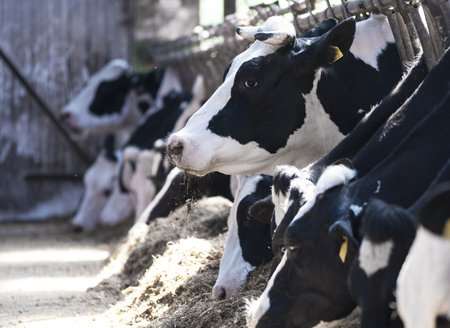MEI encourages Canada to give up supply management with farmer compensation
By Jennifer Jackson
A Montreal-based research organization has proposed Canada’s supply management system come to an end. The Montreal Economic Institute (MEI) encourages the Government to buy out farmers who own quota. The proposal suggests the total cost would be $13 billion dollars, which is on average only 38 per cent of quota’s current market value, according to a June 1 release.
The MEI is “an independent, non-partisan, not-for-profit research and educational organization,” according to the release. “Through its studies and its conferences, the MEI stimulates debate on public policies in Quebec and across Canada by proposing wealth-creating reforms based on market mechanisms.”
Abolishing the supply management system would affect the dairy, egg and poultry sectors.

MEI says, in the release, that the elimination of this system “would be positive both for farmers and for Canadian consumers.”
Alexandre Moreau, public policy analyst at MEI, co-authored the publication titled “Ending Supply Management with a Quota Buyback.”
“If the government decided to compensate farmers for the value of their quotas over a period of ten years, it would have to offer them annual payments of $1.6 billion,” he said in the release. “Yet the net benefit for consumers would be from $3.9 billion to $5.1 billion each year, and up to $6.7 billion once the reimbursement period is over.
“This exit plan would be positive and fair both for farmers and for consumers. Now, it's up to public decision-makers to take action and dismantle this regime that is unfair and costly for consumers, all while adequately compensating farmers.”
The government compensation should vary from producer to producer to ensure no one receives “excessive compensation” for quota acquired at a low cost, MEI says.
The money for the compensation would come from a temporary tax; once the compensation was paid in full, the tax would disappear, according to the release.
“Such a policy was used successfully in Australia when that country eliminated its own supply management system,” Vincent Geloso, associate researcher at the MEI and co-author of the publication, said in the release.
"The compensation offered to producers was financed by a transitory tax equal to half of the expected consumer price decline. Consumers were therefore immediately able to enjoy price reductions while farmers received payments to compensate them for their losses of revenue. The same principle could be applied here."
Canada’s supply management system has also recently been targeted by some groups south of the border. U.S. president Donald Trump, for example, declared the system “unfair” during an April rally.
But Jeff Leal, Ontario’s Minister of Agriculture, travelled to the U.S. in May to promote trade and defend Ontario’s agricultural industry.
“We’re not going to cede one inch when it comes to supply management because it works so well for Ontario’s agricultural sector,” Minister Leal told Farms.com on May 18. “We’ve done nothing wrong with our ingredient strategy that prohibits dairy exports from the United States into Canada.”
Farms.com has reached out to the Dairy Farmers of Ontario and the Egg Farmers of Ontario for their comments on the MEI proposal.